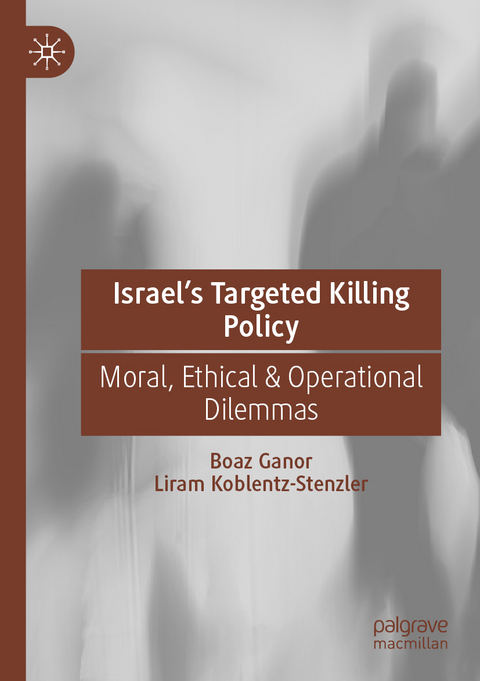
Israel’s Targeted Killing Policy
Springer International Publishing (Verlag)
978-3-031-13676-4 (ISBN)
The book explores the main moral, ethical and operational dilemmas of targeted killings from an Israeli perspective. Even though many countries contending with terrorism have adopted this tool (either overtly or covertly) within the arsenal used in implementing their counter-terrorism policies, it seems that Israel, as one of the world's leading practitioner of targeted killing in its counter-terrorism effort, constitutes the most appropriate case study for reviewing implications and dilemmas associated with this practice. Each chapter will present a different ethical-moral-operational dilemma emanating from a deployment of a targeted killing. The analysis of Israeli considerations and solutions to these dilemmas is built around interviews with Israeli decision-makers, former senior security officials and other experts. The chapters also cover public opinion polls in order to highlight the views of the Israeli public vis-a-vis each dilemma. Finally, chapters will conclude with lessons learned and offer recommendations for a practical and moral solution. The final chapter then draws together universal conclusions and recommendations for the use of targeted killings.
lt;p>Boaz Ganor is Founder and Executive Director of the International Institute for Counter-Terrorism (ICT), and Ronald S. Lauder Chair for Counter-Terrorism at Reichman University in Israel.
Liram Koblentz-Stenzler is a senior researcher and head of the Global Far-Right Extremism Desk at the International Institute for Counter Terrorism (ICT) at Reichman University, Israel.
Chapter 1. Overview - The use of targeted killing within Israel's counter-terrorism policy over the years, its goals, characteristics and evolution in Israel.- Chapter 2. Potential Cost of Targeted Killing as a Counter-terrorism Strategy - Does Targeted Killing Trigger a Retaliatory "Boomerang Attack".-Chapter 3.The death penalty - can a government act as a judge and an executioner?.- Chapter 4. The intelligence component of targeted killing - how does one prevent lethal mistakes?.- Chapter 5. The distinction principle of targeted killing - does a targeted killing of a terrorist means a deliberate hit on a combatant or a civilian?.- Chapter 6. The proportionality principle of targeted killing - Is a targeted killing really targeted?.- Chapter 7. The identity of the target - is there a justification to hit the political level of a terrorist organization or just its operational level?.- Chapter 8. Summary, Conclusions and Recommendations.
| Erscheinungsdatum | 27.10.2023 |
|---|---|
| Zusatzinfo | XI, 232 p. 19 illus., 18 illus. in color. |
| Verlagsort | Cham |
| Sprache | englisch |
| Maße | 148 x 210 mm |
| Gewicht | 323 g |
| Themenwelt | Geisteswissenschaften ► Philosophie ► Ethik |
| Recht / Steuern ► EU / Internationales Recht | |
| Sozialwissenschaften ► Politik / Verwaltung ► Vergleichende Politikwissenschaften | |
| Schlagworte | Counter-Terrorism • Counter-Terrorism Tactic • democratic dilemma • Discrimination Principle • Military Ethics • national security • Proportionality • Targeted Killing • terrorism |
| ISBN-10 | 3-031-13676-4 / 3031136764 |
| ISBN-13 | 978-3-031-13676-4 / 9783031136764 |
| Zustand | Neuware |
| Haben Sie eine Frage zum Produkt? |
aus dem Bereich


